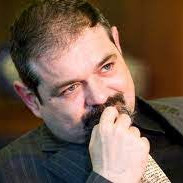Bio
Stefano Boccaletti is an Italian physicist. He is senior researcher at the CNR's Institute for Complex Systems in Florence, Italy. His research is mainly concerned with nonlinear and statistical physics, and complex systems sciences with applications to systems biology and systems medicine, data and networks sciences, social science and engineering, among others.
Talks
-
Abstract
Structure, processes and dynamics of networks with higher order interactions
Keynote
02-10-2022 - 09:15-10:00
All the beauty, richness and harmony in the emergent dynamics of a complex system largely depend on the specific way in which its elementary components interact. The last twenty years have seen the birth and development of the multidisciplinary field of Network Science, wherein a variety of distributed systems in physics, biology, social sciences and engineering have been modelled as networks of coupled units, in the attempt to unveil the mechanisms underneath their observed functionality.
But there is a fundamental limit in such a representation: networks capture only pairwise interactions, whereas the function of many real-world systems not only involves dyadic connections, but rather is the outcome of collective actions at the level of groups of nodes. For instance, in ecological systems, three or more species may compete for food or territory, and similar multi-component interactions appear in functional and structural brain networks, protein interaction networks, semantic networks, multi-Authors scientific collaborations, offline and online social networks, gene regulatory networks and spreading of consensus or contagious diseases due to multiple, simultaneous, contacts.
Such multi-component interactions can only be grasped through either hypergraphs or simplicial complexes, which indeed have recently found a huge number of applications in social and biological contexts, as well as in engineering and brain science.
These structures are indeed becoming increasingly relevant, thanks to the enhanced resolution of data sets and the recent advances in data analysis techniques, which (concurrently and definitely) have shown that they play a pivotal role in the complex organization and functioning of real-world distributed systems.
In my talk, I will describe a series of relevant problems which arise when one goes beyond the limit of pairwise interactions in a networked system. In particular, I will try to focus on some structural issues of these new objects, such as the need of properly redefining centrality and ankings of nodes, as well as on a series of new emerging phenomenologies that appear in processes and dynamics taking place on top of such new objects.
